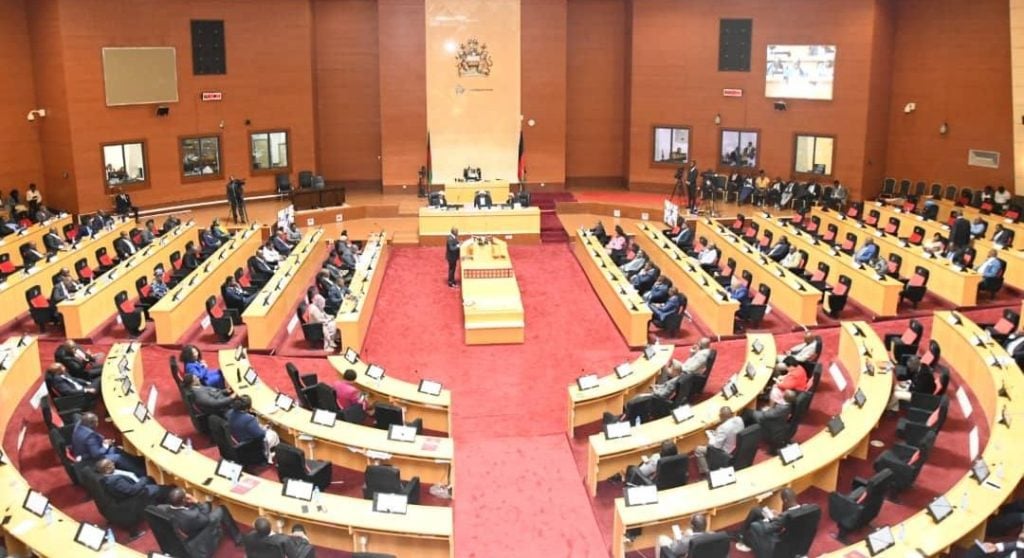Over 64% of Malawi’s MPs Have Failed to Return to Parliament: Here is Why!
Malawi’s 2025 parliamentary election has delivered a strong and painful message to most of its lawmakers: voters have had enough.

Nyasatimes analysis has revealed that from the 2019–2025 cohort of Parliament, only 70 out of 193 Members of Parliament have been re-elected. That means just 36 percent of MPs have managed to hold on to their seats, while a staggering 64 percent—about 123 lawmakers—have been voted out.
Among those who survived, 15 are women and 55 are men, showing that male legislators still dominate the comeback list. Women’s representation remains worryingly low despite years of advocacy for gender balance in politics.
The rejection has cut across all political parties. In 2019, the Malawi Congress Party (MCP) had 55 MPs, but only 30 have returned to the House. The Democratic Progressive Party (DPP) had 62 MPs and just 34 have made it back.
The United Democratic Front (UDF) suffered even worse, with only three of its ten former MPs re-elected. Independent candidates fared no better—of the 55 who entered Parliament in 2019, only five were able to reclaim their seats.
The result is a brand-new Parliament, now expanded to 229 seats, filled with a majority of first-time legislators who are currently undergoing orientation in Lilongwe as they learn how to navigate the country’s legislative business.
Analysts say this high turnover is not surprising.
Political scientist Ernest Thindwa believes most MPs lose because they promise what they cannot deliver. During campaigns, they tell voters they will bring roads, schools and clinics—responsibilities that actually belong to government ministries and local councils, not Parliament.
“When those promises fail to materialise, voters punish them,” Thindwa said. “It’s a mismatch between what people expect and what MPs can realistically do.”
Boniface Chibwana, executive director of the Centre for Multiparty Democracy, agrees. He says the figures show Malawians are increasingly demanding and no longer blindly loyal to parties. “People are voting based on results,” he said. “If you don’t perform, you’re out.”
That shift, he argues, is healthy for democracy but it also creates pressure on MPs to deliver visible results even in areas beyond their mandate. The pressure to please voters quickly often leads to populism rather than serious legislative work.
Benedicto Kondowe, chairperson of the National Advocacy Platform, adds that the outcome shows a rise in political awareness among ordinary Malawians. “Citizens are becoming more conscious and assertive,” he said. “They are voting for performance and integrity, not just party colours.”
However, Kondowe warns that such massive turnover comes at a cost. Parliament loses experienced lawmakers who understand the complexities of law-making, policy debate and government oversight. Every five years, the legislature is forced to rebuild itself almost from scratch, slowing down its ability to function effectively.
The problem is not unique to Malawi. A 2022 study titled “Turnover and Accountability in Africa’s Parliaments” found that across 12 countries with similar electoral systems, only about one in three MPs is re-elected. In Sierra Leone, the re-election rate is as low as 25 percent, while Uganda records around 43 percent. Only about five percent of African MPs manage to serve three or more terms.
Malawi’s 36 percent survival rate fits neatly within that continental pattern. It shows that parliamentary careers across Africa are short and uncertain, as voters increasingly replace incumbents regardless of their experience.
At first glance, this looks like a triumph for democracy—citizens exercising their power to remove non-performing leaders. But experts warn that it can also trap the system in a cycle of short-termism. When MPs know they are unlikely to return, they focus more on visibility and popularity—attending funerals, giving donations, or making unrealistic promises—instead of tackling serious policy issues that require patience and time.
This is what researchers call an “accountability trap,” where both voters and politicians are caught in a spiral of mistrust. Politicians stop planning long term, and voters, frustrated by lack of progress, continue to vote them out—starting the cycle all over again.
The 2025 election has therefore revealed both the strength and weakness of Malawi’s democracy. Voters have shown that they are alert, conscious, and willing to demand change. But at the same time, the country risks losing valuable institutional memory every election cycle.
For the new Parliament, the message is clear: learn fast, understand your constitutional role, and rebuild public trust in the legislative process. Otherwise, history suggests that when Malawians return to the polls in 2030, most of today’s fresh faces will once again be shown the exit door.
Follow and Subscribe Nyasa TV :

